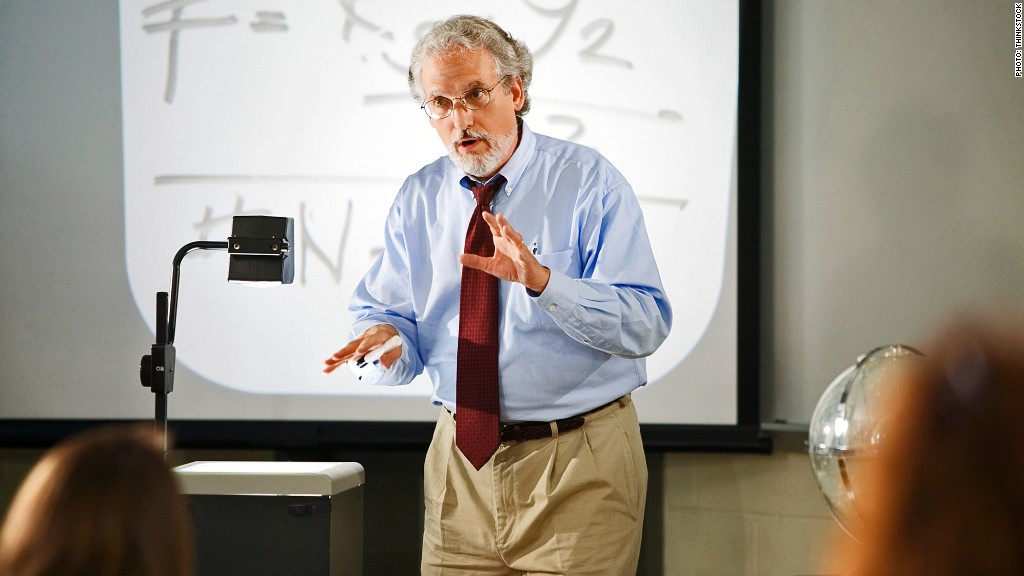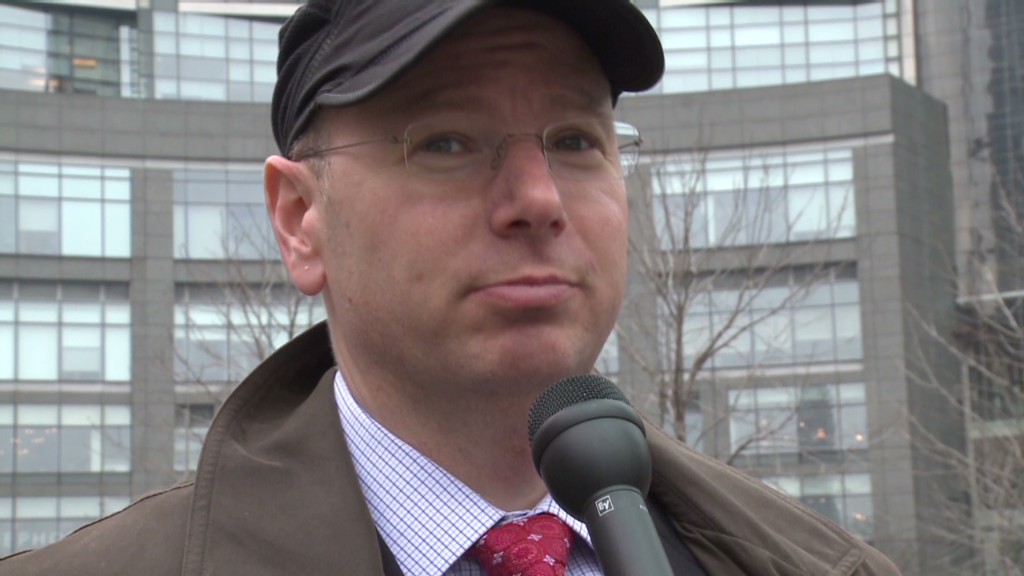
While most people dream of the day they can retire, many college professors plan to put it off or work until their final years.
The sluggish economy has made people in all professions question whether their nest eggs will get them through retirement. Professors are no different -- plus many of them love their jobs too much to leave. But paired with the fact that colleges and universities are offering a smaller percentage of tenure-track spots, it's making it increasingly tough for aspiring professors to start their careers.
A Fidelity survey released Monday echoes prior studies and anecdotal evidence that found many professors are teaching into their golden years.
Fidelity polled several hundred faculty members between the ages of 49 and 67, and nearly 75% said they planned to retire after age 65. While 65% of those planning to delay said they were motivated by financial reasons, such as maximizing Social Security payments or hanging onto health insurance, more than 80% plan to stay for professional reasons.
"If I go several days without teaching, I long for it," said 71-year-old writing professor Donald Gallehr. "I miss my students. I wish I was in the classroom."
But many of these professors are holding onto coveted -- and shrinking -- tenure-track spots, which usually guarantee lifetime job security. Tenured and tenure-track professors made up about a quarter of instructors in 2011, compared to nearly 40% of instructors in 1989 and close to 50% in 1975, according to the American Association of University Professors.

The result is that more than 40% of college professors are forced to rely on poorly paid and less secure "adjunct" positions, according to the American Association of University Professors. They typically are part-time employees and thus aren't eligible for health care or retirement benefits.
Adjuncts who teach at four-year research institutions make a median of $3,400 per course, while those at two-year colleges receive only $2,235, according to the Coalition on the Academic Workforce. In contrast, full-time professors (associate professor rank and up) earn average annual salaries of about $75,000 to $140,000, depending on the type of university, according to the American Association of University Professors.
Money 101: Planning for retirement
"The fact that people stay longer means you have a little less flexibility, you're not hiring as many younger faculty," said Robert Clark, an economics and management professor at North Carolina State University who has researched higher education retirement trends. "That certainly is an issue."
Grappling with an aging workforce, many colleges and universities have instituted incentive programs, such as buyouts, to encourage senior faculty members to retire. But for many professors, their love for the job wins out.
Gallehr, who has taught at George Mason University for nearly 50 years, said he plans to teach for at least another five to 10 years. And even after his official retirement, he hopes to teach classes at a local community college.
Related: Highest paid university presidents
Meanwhile, 34-year-old adjunct professor Adam Davis juggles eight biology and anthropology classes each semester in the Pittsburgh area -- and teaches summer courses -- but still just earns about $30,000 a year.
"I don't get health care. I don't have a retirement plan," he said. "You don't really know from one day to the next whether you're going to get work."
Still, like Gallehr, he loves teaching and is hopeful that he'll eventually land on the tenure track. And if he does, he plans to hold on to it tightly.
"The joke in anthropology is you do it until you die," he said, "and then we shove you in the pit we're digging."

